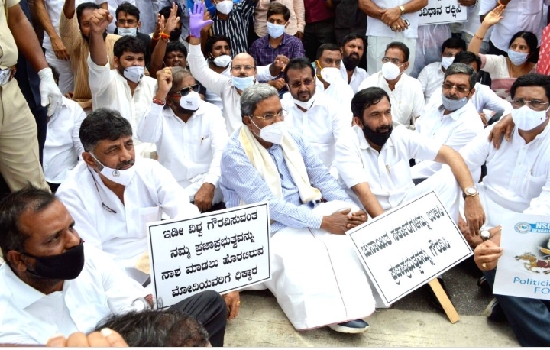Newsroom, May 1: The bomber who blew himself up outside the US Consulate in Jeddah, a coastal city of Saudi Arabia two years ago was a non-resident Indian, confirmed the authorities of the Kingdom on the basis of DNA tests.
The accused who killed himself in bid to cause harm to others has been identified as Fayaz Kagzi, an Indian national and alleged operative of the Lashkar-e-Toiba, a senior security official said.
The Jeddah blast on July 4, 2016, which injured two security officers, was the first of three attacks to hit the kingdom that day. The other two were also in the form of blasts near a Shia mosque in Qatif and outside the Masjid-i-Nabvi in Medina.
The National Investigation Agency informed the Patiala house court in Delhi that the terror mastermind was dead. Sources said that NIA believes Kagzi, who hails from Beed in Maharashtra, was the 'mastermind', 'financier' of the 2010 German bakery blast and 2012 JM Road bombing. The 34-year-old was also wanted in the Aurangabad arms haul case and is suspected of teaching Hindi to 26/11 terrorists, including Ajmal Kasab.
Saudi authorities had first released the picture of the Jeddah bomber and called him Abdullah Qalzar Khan, a Pakistani national. Maharashtra Anti-Terrorism Squad (ATS) officers identified the man in the picture as Fayaz Kagzi and subsequently, with the help of NIA, shared their suspicion with Jeddah.
Kagzi fled to Pakistan via Bangladesh in 2006 and shifted his base to Saudi Arabia in 2009 to oversee the recruitment of Indian nationals to LeT. Sources say that it is possible that he took on a new name of Abdullah Qalzar Khan while in Pakistan.
Abu Jundal, a convict in the Aurangabad arms haul case, had told investigators that he met Kagzi in Saudi Arabia. Jundal was extradited to India in 2012 and is currently facing trial in conspiracy against India cases.
Agencies believe after Jundal's extradition, Kagzi switched alliance to ISIS and became part of the Jeddah suicide bombing conspiracy.
India and Saudi Arabia have in recent times cooperated in terrorism-related cases. India could arrest Lashkar's Abdul Karim Tunda only after Saudi authorities cooperated.
Saudi Arabian ambassador to India, Dr Saud bin Mohammed Al Sati, had said last week that the kingdom has a very strong cooperation with India on countering terrorism, extremism and terror financing.





Comments
Suicide bomber who blew himself up near the United States consulate in Jeddah early Monday has been identified as a Pakistani citizen, the Saudi interior ministry said on Tuesday.
The ministry identified the man as 35-year-old Abdullah Gulzar Khan, who worked as a driver in the kingdom.
Khan had been living with his wife and her parents in Jeddah for 12 years, the interior ministry said in a tweet. July 05, 2016
https://www.dawn.com/news/1269220
Add new comment